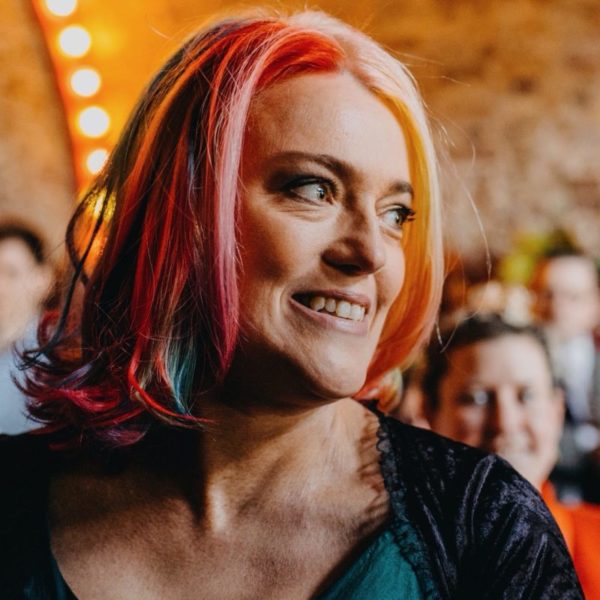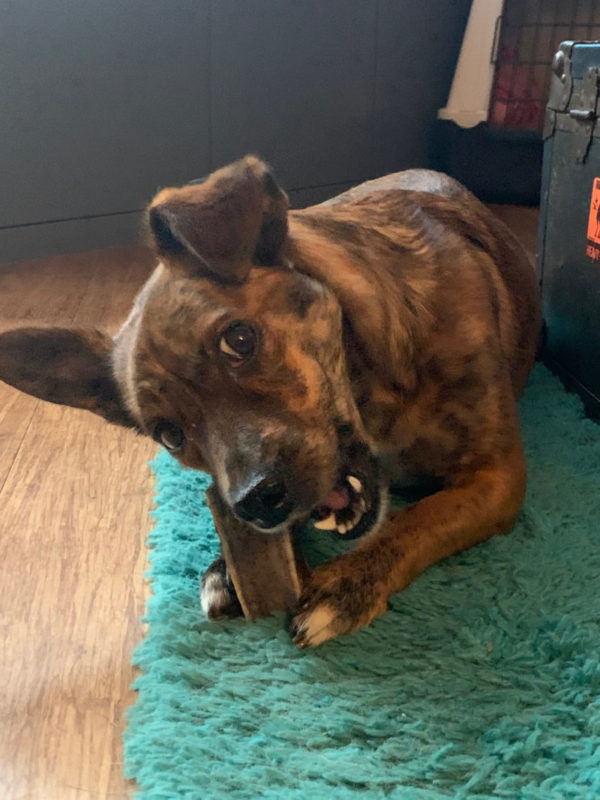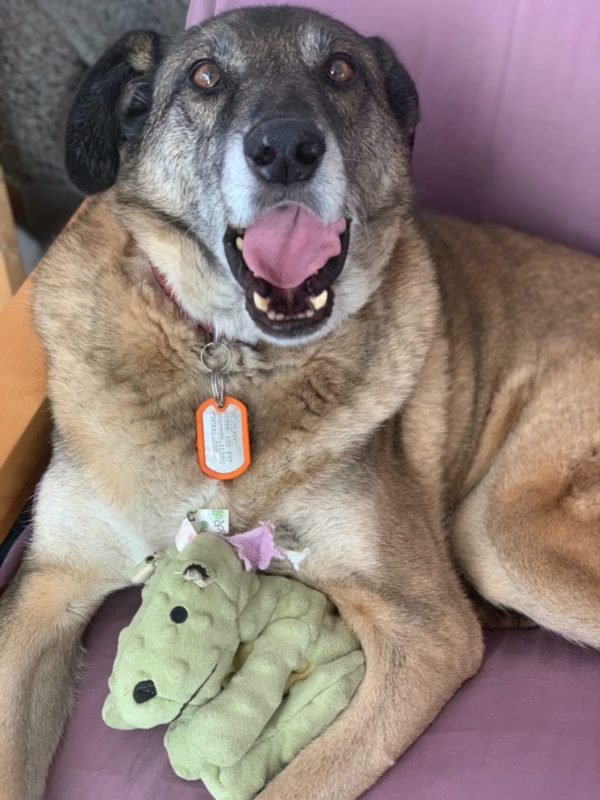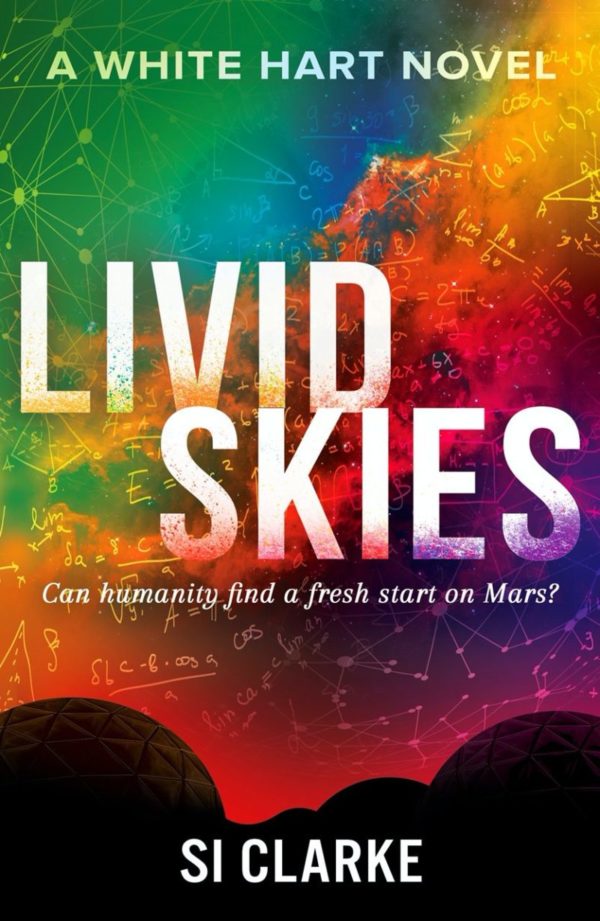Welcome to my weekly Author Spotlight. I’ve asked a bunch of my author friends to answer a set of interview questions, and to share their latest work.
Today, SI Clarke – SI CLARKE is a Canadian misanthrope who lives in Deptford, sarf ees London. She shares her home with her partner and an assortment of waifs and strays. When not writing convoluted, inefficient stories, she spends her time telling financial services firms to behave more efficiently. When not doing either of those things, she can be found in the pub or shouting at people online — occasionally practising efficiency by doing both at once.
As someone who’s neurodivergent, an immigrant, and the proud owner of an invisible disability, she strives to present a realistically diverse array of characters in her stories.
Giveaway:
This is a free short story that takes place during Livid Skies: Katya’s worked hard to overcome a traumatic past and to get where she is – on Mars. So why doesn’t her life meet her expectations?
Link: https://storyoriginapp.com/directdownloads/05e8605b-af30-42d8-8bbf-524ae0e879c0

Thanks so much, SI, for joining me!
JSC: How would you describe your writing style/genre?
sic: I’ve built my author brand around the phrase: Neurodiverse, culturally diverse, gender-bendy, socio-politico-economic, drunken-arguments-in-the-pub science fiction – not bang-bang-pew-pew science fiction.
JSC: If you could tell your younger writing self anything, what would it be?
sic: Oh my gosh, planning. Planning. Seriously, younger self, make a plan.
JSC: Do you ever base your characters on real people? If so, what are the pitfalls you’ve run into doing so?
sic: Each of my characters is drawn from a variety of people I’ve known or encountered. If someone says something funny or interesting or deep in my presence, it’ll end up in a book. But no one character is wholly based on any one person. The weirdest thing about it all is that sometimes the things people have actually said end up being the least believable lines of dialogue.
Like, a guy I used to work with once told a story. He said, ‘so last night my girlfriend – oops, I mean my daughter…’ He corrected himself and then carried on talking like there was nothing wrong with any of that. I quoted him verbatim in my first novel – and people have told me that line is over the top, that surely no one would ever say that. And it’s not like I could ask him to vouch for himself – since he probably wouldn’t want that line repeated anyway.
JSC: Do you read your book reviews? How do you deal with bad or good ones?
sic: It’s funny; when I first started writing, I braced myself for reviews bitching about the fact I play fast and loose with gender, sexuality, religion, and politics. Instead, the worst review I’ve had to date (about my first novel, Devon’s Island) said no one wanted to read about planning to go to Mars – they wanted to read about going to Mars. And honestly, my sales figures bear that out. But part of me wonders why anyone would read a book that says it was about a thing they weren’t interested in. (shrug)
JSC: Are there underrepresented groups or ideas featured if your book? If so, discuss them.
sic: A huge subset of science fiction fans are neurodivergent in one way or another. In particular, autistic people are much more widely represented in the SF fan community than we are in the world in general. One of the central characters in my series is autistic. I also write about aces and people with invisible disabilities, transgender people, and non-binary people. And my characters come from all over the world. A Romanian person wrote to me after reading Devon’s Island, to say how pleased she was to see a Romanian character taking centre stage – and portrayed in a positive light.
JSC: Are you a plotter or a pantster?
sic: I pantsed the crap out of my first few novels. And in each case, I got several tens of thousands of words into writing before I realised that the story wasn’t going anywhere. At all. They all just fizzled out. So now I force myself to plan the entire story before I write a single word. All my chapters start out with two or three bullet points of what needs to happen. But within each chapter, I’m free to pants away. Which I guess makes me about 90% plotter – with a little soupçon of pantsing.
JSC: What tools do you feel are must-haves for writers?
sic: This is probably going to be an unpopular answer, but… A huge vocabulary and good grammar. Those are your weapons. You can have all the natural skill in storytelling in the world, but you’re going to sell your ideas short if you don’t have the tools to make them shine.
JSC: What was the weirdest thing you had to Google for your story?
sic: Pooping on Mars. Believe it or not, I agonised for ages trying to figure out how to deal with human waste on Mars. That is, I did so until I discovered someone got there before me. Because, of course they did. A company called Sun Mar in Canada has developed composting toilets for the Hawaii Space Exploration Analogue and Simulation (“HI-SEAS”), a NASA-funded Mars simulation mission.
JSC: What pets are currently on your keyboard, and what are their names? Pictures?
sic: At 36 kg (~80 pounds), Ozzy’s a bit big to sit on my keyboard. But don’t tell him that; he thinks he’s tiny and defenceless. Lemmy’s 11.5 kg (~25 pounds) of solid muscle. He likes to stand on his hind legs with his front paws on my desk and tell me what to write. (pics attached)


JSC: Describe yourself using a song.
sic: I am a heavy metal cover of Britney Spears’ Baby One More Time. There’s nothing original about me, but I’m still … not quite what people expect.
And now for SI’s new book: Livid Skies:
Having escaped Earth as a deadly pandemic took hold, autistic scientist Devon and her fellow colonists are hoping for a fresh start on Mars.
Mars isn’t exactly hospitable to the newcomers, though. With the weight of loss hanging heavy on them, they must overcome their differences and find a way to survive as they adjust to life alone on a hostile planet.
The group – 150 women and 10 men – are determined to get it right this time. Their society is peaceful and diverse. They accept one another’s differences and prioritise sustainability over short-term gain.
Scarcity of resources means they can’t have fully automated luxury gay space communism–so they strive for partially automated social liberalism.
But things aren’t always what they seem and maybe the colonists aren’t as alone as they thought.
Amazon | Universal Buy Link
Excerpt
Bouncing on the balls of her feet, Frankie said, ‘This little one is the first to make it through the gestation period in Helen’s fancy contraption. I’m happy to pronounce her fit as a fiddle.’ She waved me over before detaching the gloves from the incubator.
Now it was my turn. I stepped towards the incubator and its occupant, feeling like I was floating – a pleasant sensation, like the first few minutes of our zero-G training flights. She looked so tiny and frail. Like a greased tribble. I looked back over my shoulder at the others in their scrubs and gowns. ‘You’re sure it’s okay?’
Helen stood with her shoulders back. ‘It’s important you bond with her. Since she has no mother, you’re going to have to fill that role.’
Frankie’s grin was wider than I’d ever seen on her, smiley though she was. She squeaked as she hugged her arms tightly around herself. ‘Bare hands please. We need her to connect with your scent.’
To my left, Davy stood in the corner of the room, smiling as she recorded the birth of the very first Martian. Well, the first sentient one. We had plenty of bees and worms and mice.
Every day for the past four weeks, I’d been coming to the Scud, watching her grow. It was incredible seeing her develop before my eyes. Her ‘womb’ was a device that looked like a big zip-top bag filled with different coloured tubes running off in every direction. When I first saw her, she looked like a little prawn inside a bag of goo.
At various stages, I thought I saw the beginnings of hair or paws or ears, and then within a few days, they were unmistakeable. From that tiny naked blob, she’d grown into this … this … this… She still didn’t quite look like a puppy – just an amorphous ball of shiny black fur. But she was alive and healthy and I loved her.

